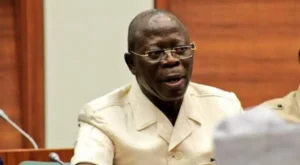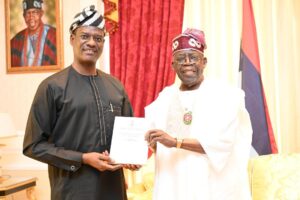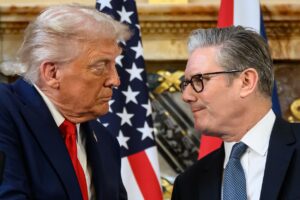The United States and Russia have agreed to exchange prisoners, just days after former U.S. President Donald Trump publicly called Russian President Vladimir Putin “crazy.”
The agreement was shared by Russian Foreign Minister Sergey Lavrov on May 27 during a diplomatic event in Turkey. Lavrov described Trump as someone who “wants results” and said the deal happened during larger peace talks about ending the war in Ukraine. He also accused European countries of trying to block those peace efforts.
So far, the U.S. State Department has not confirmed which prisoners are involved. But reports from the Kyiv Post suggest Trump is thinking about loosening rules on how Ukraine can use U.S.-supplied weapons against Russian forces.
This news came shortly after Trump spoke about a large prisoner swap between Russia and Ukraine, which could include around 1,000 people from each side. On his Truth Social account, Trump hinted this could lead to “something big,” but didn’t share more.
If this new U.S.–Russia swap goes through, it would be the first since American teacher Marc Fogel was released from a Russian jail in February, after being locked up for over three years.
Some Americans still held in Russia might be included in this swap. Among them are Stephen Hubbard, 72, jailed for reportedly fighting for Ukraine, and U.S. Army Staff Sergeant Gordon Black, 35, who was arrested in May 2024 over what U.S. officials say are questionable theft charges.
The prisoner deal follows a busy weekend of diplomacy. On Saturday, Trump said he might add new sanctions against Russia. The next day, he strongly criticized Putin, accusing him of making the Ukraine war worse and warning it could cause Russia’s downfall.
“I’ve always had a very good relationship with Vladimir Putin,” Trump wrote on Truth Social. “But something has happened to him.”
The Kremlin answered by saying Trump might be feeling emotional because of the heavy pressure to help create peace. Still, Kremlin spokesperson Dmitry Peskov thanked Trump for helping to start the negotiation process.
Lavrov’s recent comments might signal a change in U.S.–Russia relations. Even though tensions remain high, this prisoner exchange shows both countries may be working together secretly to ease the conflict.
Although Trump had strong words for Putin, he also criticized Ukrainian President Volodymyr Zelenskyy. Trump said Zelenskyy’s way of speaking was not helpful and was only making things worse.
“Everything out of his mouth causes problems. I don’t like it, and it better stop,” Trump said, adding that the war “would never have started if I were president.” He called the conflict “Zelenskyy’s, Putin’s, and Biden’s war—not Trump’s,” claiming his current efforts are focused on extinguishing the flames of a crisis he believes was caused by “gross incompetence and hatred.”







